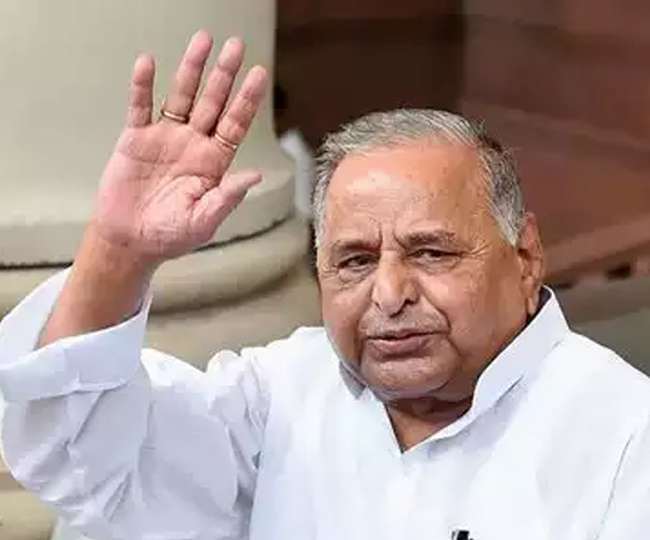Some politicians out there will employ all kinds of unscrupulous tactics to get what they want, as long as it fits their agenda. This quote fits perfectly on Samajwadi Party patron Mulayam Singh Yadav who has a reputation of being an unpredictable politician. Born on November 22, 1939, Mulayam Singh Yadav has been an integral part of the Uttar Pradesh politics until his son Akhilesh Yadav took over the party to destroy his father’s legacy. The founder of the Samajwadi Party (SP), Mulayam Singh, is an opportunistic politician who has a tendency to act in accordance with the situations without sticking to any ideology.
Against Indira, with Soniya
In 1975, during Indira Gandhi’s imposition of the Emergency, Yadav was one of the politicians from the opposition who was arrested and imprisoned for 19 months. Mulayam had the courage to oppose Indira in 1975 but driven by his political agendas to survive, he also backed Sonia Gandhi led UPA Government. In 2008, when the United Progressive Alliance(UPA) government opted for a floor test after the four Left parties withdrew their support to the coalition over the Indo-US nuclear deal, Mulayam Singh Yadav led Samajwadi Party (SP), who initially opposed the agreement, changed its stand and decided not only to support the government but also made extraordinary exertions to save it.
However, when Mulayam switched sides from his loyal friends to the Congress, the political world was not surprised as this about-turn was not out of his character.
No Ram Mandir in 1990, a Ram Bhakt in 2020
The campaign for a Ram temple in Ayodhya began with the 1986 resolution of the RSS Pratinidhi Sabha. However, it gathered momentum after nationwide Rathyatra of BJP president LK Advani. Mulayam Singh Yadav, the then chief minister of Uttar Pradesh was strongly against the Ayodhya campaign by the RSS, the BJP and the VHP.
Opposing the campaign, he had declared in 1990 that “Let them try and enter Ayodhya. We will teach them the meaning of law. No masjid will be broken.”
Witnessing a huge gathering of karsevaks (volunteers) in the Uttar Pradesh city to support the campaign, Mulayam had given the orders to the police to open fire at them. The volunteers were chased down in the streets of Ayodhya.
Proving his hypocrisy yet again, he expressed regret over ordering the firing on karsevaks. He stated, “I regret giving orders to shoot karsevaks at Ayodhya. My decision to order firing at karsevaks was to save Muslim minorities. This decision was needed to keep the faith of Muslims in this country intact.”
Mulayam Singh Yadav, an opportunistic man
Well, the opportunistic personality of Mulayam Singh can also be indicated through the fact that he dumped Chandra Shekhar, who was one of his mentors over V P Singh when it came to choosing a Prime Ministerial candidate. After the political differences, he also dumped V P Singh to get along with Chandra Shekhar. He told his biographers, “Ham to experiment kar rahe hain. VP ko dekh liya ab Chandra Shekhar ki bari hai. Baat bahut saaf hai: jis taraf Mulayam rahega wo hi mazboot ho jayega.” (I am experimenting. I have seen VP; now it is Chandra Shekhar’s turn. Who ever Mulayam aligns with will become strong).
He had also advised the government to reverse its stand on the Tibet issue and support its independence, claiming that China was ready to attack India in collaboration with Pakistan.
In addition to that, Mulayam Singh also disregarded Shivpal Yadav, a disgruntled Chacha, for the coveted post favoring his own blood. Later, after Akhilesh turned his back towards Mulayam, the latter went back to Shivpal.
Despite not being in power, Samajwadi Party still garner votes in the name of Mulayam Singh Yadav. Such is the aura of Mulayam in Uttar Pradesh. However, the leader’s opportunism does not reflect well on his political career.
